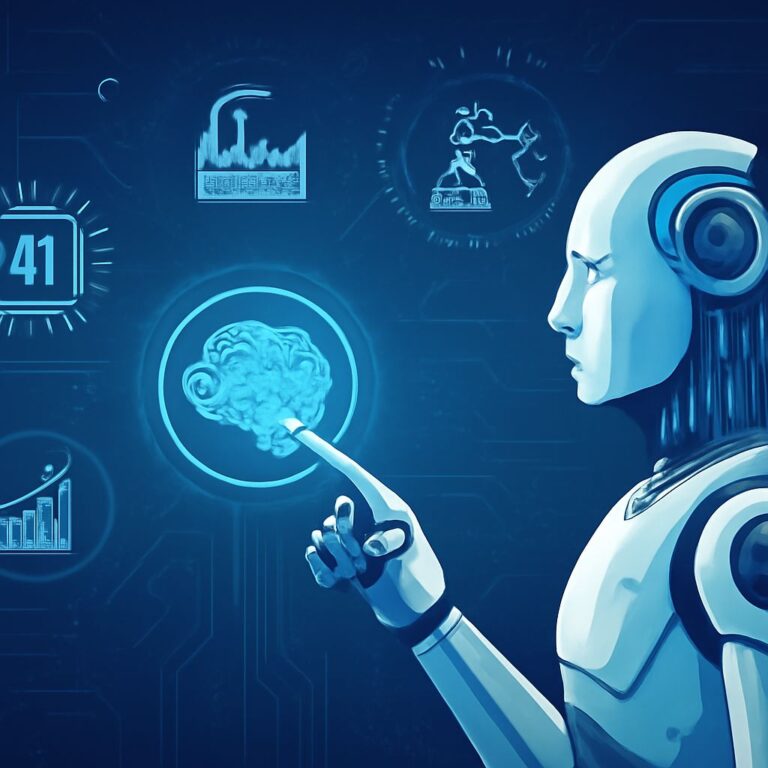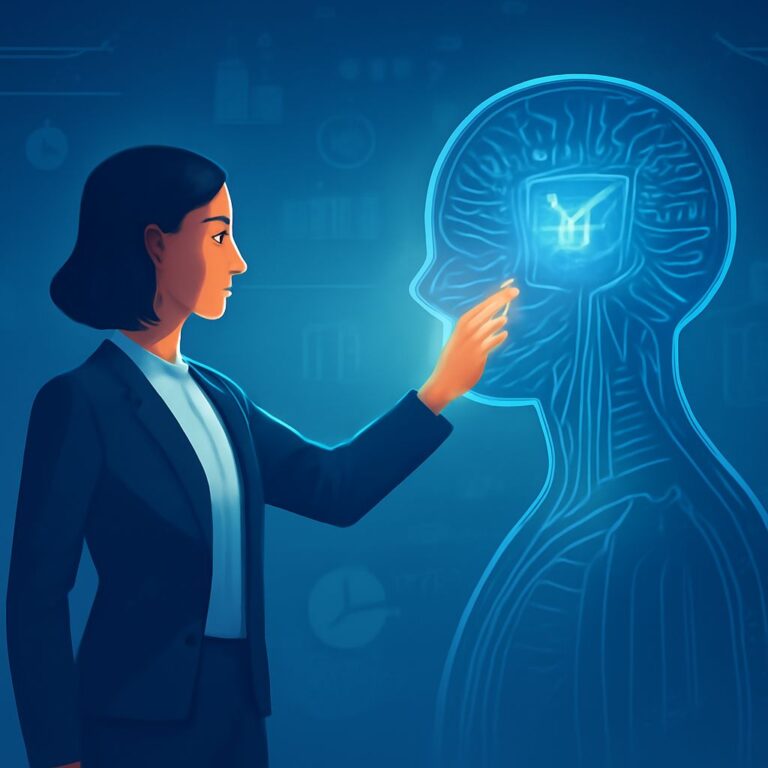Table of Contents
Embracing AI for Business Transformation
The integration of Artificial Intelligence (AI) into various business processes has accelerated digital transformation globally. From improving customer service to optimizing operational efficiencies, AI is a pivotal force driving new ways of conducting business.
Businesses today are leveraging AI to enhance decision-making, streamline operations, and deliver enhanced customer experiences. This evolution is not just about efficiency—it’s about reinventing how businesses operate and innovate. By embracing AI, companies can unlock new opportunities and forge paths that lead to sustained growth and innovation.
The Strategic Role of AI
AI stands at the forefront of technological innovation, serving as a catalyst for reshaping business strategies. Companies capitalizing on AI’s potential find themselves leading industry trends, outpacing competitors who have yet to adopt AI-driven methods. From startups to multinational corporations, AI’s utility transcends industry boundaries, offering tools that facilitate data-driven decision-making and strategic agility.
Top AI Instruments Transforming Industries
Several AI instruments have emerged as game-changers across different sectors. Organizations that adopt these tools are often at the forefront of their industries, achieving significant competitive advantages. Let’s explore some of these pioneering AI instruments:
- Machine Learning Algorithms: At the heart of AI, machine learning algorithms are used extensively for data analysis and prediction. By training these systems on historical data, businesses can forecast trends and make informed strategic decisions. This predictive capability allows businesses to anticipate market shifts and adjust their strategies in real-time, resulting in more robust and responsive business models.
- Natural Language Processing (NLP): This AI instrument enables machines to understand and process human language. Whether it’s chatbots for customer service or tools for sentiment analysis, NLP keeps businesses connected and responsive to their customer base. By analyzing customer interactions, businesses can tailor their services and products to better meet customer needs, enhancing overall satisfaction and loyalty.
- Robotic Process Automation (RPA): RPA helps automate repetitive and routine tasks, freeing up human employees to focus on more complex activities. This tool is particularly beneficial in sectors like finance and healthcare, where it reduces errors and increases productivity. By automating routine processes, businesses not only enhance accuracy but also streamline costs and improve service delivery times.
Innovative AI Technologies on the Horizon
Beyond the widely recognized AI tools, emerging technologies like autonomous systems and AI-driven analytics are set to revolutionize industries further. Autonomous systems, such as self-driving vehicles and drones, promise to redefine logistics and transportation, offering more efficient and cost-effective solutions. AI-driven analytics, meanwhile, are empowering businesses with deeper insights, unveiling patterns and trends previously hidden in complex data sets.
AI in Action: Real-World Applications
The real-world applications of AI span a wide range of industries. Here are some examples of how AI is reshaping sectors:
- Healthcare: AI is assisting in diagnosis through imaging analysis, improving patient care with predictive models, and managing patient records more efficiently. Machine learning algorithms analyze vast amounts of medical data to identify patterns that can predict illnesses, allowing for earlier intervention and personalized treatment plans.
- Finance: From fraud detection systems to robo-advisors, AI technologies are revolutionizing how financial services are delivered and consumed. AI-powered analytic tools assess risk more accurately and streamline investment strategies, enhancing financial decision-making processes.
- Retail: AI tools power recommendation engines that enhance the customer shopping experience, and demand forecasting systems help retailers manage inventories more effectively. By predicting consumer preferences and buying behavior, retailers can optimize inventory levels, reduce waste, and increase sales.
- Manufacturing: AI-driven automation and predictive maintenance systems are transforming manufacturing operations. These systems analyze data from machinery and processes to predict equipment failures and optimize maintenance schedules, reducing downtime and improving operational efficiency.
Emerging Trends in AI Applications
As AI technology advances, its applications continue to expand into new realms. The integration of AI with the Internet of Things (IoT) is creating smart environments in homes and workplaces, where data-driven processes enhance everyday life. Additionally, AI’s role in cybersecurity is becoming increasingly vital, as it helps to identify and mitigate potential threats before they manifest, safeguarding sensitive information and maintaining system integrity.
Challenges and Considerations
While AI offers numerous benefits, its implementation poses certain challenges. Data privacy, algorithmic bias, and the integration of AI systems with existing infrastructure are concerns businesses must address diligently. Navigating these challenges requires robust strategies and compliance with regulatory standards. Companies must invest in building ethical AI frameworks that prioritize transparency and accountability in AI deployments.
The Ethical and Social Implications of AI
Beyond technical and operational concerns, the ethical implications of AI adoption are significant. As AI systems become more autonomous, questions about accountability and moral responsibility arise. There is a growing need for policies ensuring that AI technologies do not perpetuate biases or inequities. Collaborative efforts between technologists, policymakers, and communities are essential to develop AI systems that are fair, ethical, and beneficial for all.
FAQ
What are the key benefits of implementing AI in business?
AI enhances operational efficiency, improves decision-making, and delivers personalized customer experiences, ultimately driving business growth and innovation. By automating complex processes and providing actionable insights, AI enables businesses to operate more effectively and competitively in a rapidly changing market.
How do machine learning and AI differ?
Machine learning is a subset of AI that focuses on the development of algorithms allowing computers to learn from data. AI encompasses the broader scope, including machine learning, to simulate human intelligence. While machine learning focuses on pattern recognition and predicting outcomes, AI seeks to mimic human reasoning and problem-solving abilities in various contexts.
Is AI suitable for small businesses as well?
Yes, AI offers numerous tools and solutions tailored for small businesses. From chatbots for customer support to AI-driven marketing platforms, small businesses can leverage AI to improve operations and increase competitiveness. By adopting scalable and cost-effective AI solutions, small businesses can enhance their reach and operational capabilities, positioning themselves favorably in their respective markets.
How can businesses ensure successful AI implementation?
Successful AI implementation requires a strategic approach that aligns with business goals. Companies should start by identifying areas where AI can deliver the most value. Engaging AI experts, investing in employee training, and ensuring data quality are critical steps. Moreover, fostering a culture of innovation and continuous improvement will help businesses adapt AI solutions effectively and responsibly.









